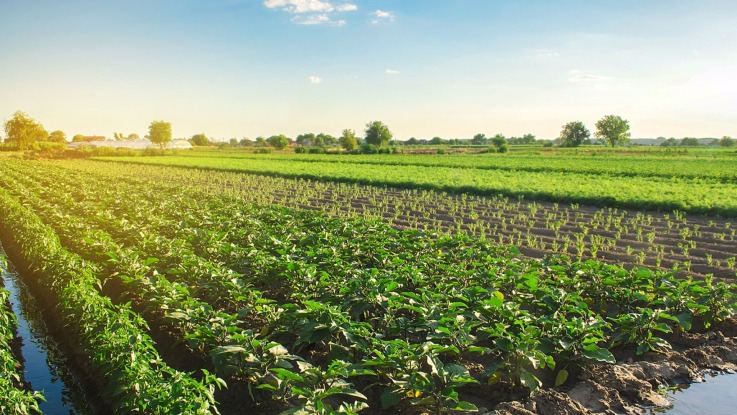Agricultural funding opportunities are essential for farmers, agribusinesses, and nonprofit organizations focused on agricultural development. These funding sources support a variety of initiatives, from enhancing crop production to implementing sustainable farming practices. Understanding the landscape of agricultural funding is crucial for stakeholders looking to leverage these resources effectively.
The agricultural sector is diverse, encompassing small family farms to large agribusinesses, each with unique funding needs. To navigate this landscape, it is important to identify the different types of funding available, including federal grants, state and local programs, private loans, and international funding.
Federal grants for agriculture are a significant source of funding for various agricultural initiatives. Numerous programs, such as the Sustainable Agriculture Research and Education (SARE) program, provide financial support while promoting sustainable farming practices. These programs also encourage collaboration among farmers, researchers, and educators to share knowledge and best practices. The Specialty Crop Block Grant Program, which focuses on enhancing the competitiveness of specialty crops such as fruits, vegetables, and nuts, is another key opportunity. States can allocate funds to projects that improve marketing, research, and education related to specialty crops, making federal grants a vital resource for agricultural professionals.
In addition to federal funding, state and local governments offer a range of funding programs designed to meet the specific needs of their agricultural communities. These programs often reflect regional priorities and challenges. Agricultural development funds, for instance, provide low-interest loans or grants for projects aimed at improving farm viability or promoting innovative practices. Local governments may also offer funding through economic development initiatives or community development block grants. These programs can support a wide array of activities, from infrastructure improvements to workforce training in agriculture. By engaging with state and local agencies, agricultural professionals can uncover opportunities that align with their community’s needs.
Private grants and loans also represent another avenue for securing funding. Many foundations and nonprofit organizations are dedicated to supporting agricultural innovation and sustainability. Private grants often focus on specific areas such as organic farming or food security, allowing applicants to align their projects with the foundation’s mission. In addition to grants, private loans can provide essential capital for agricultural projects, such as purchasing land, equipment, or covering operational expenses. The Farm Credit System, for example, offers loans tailored to the unique needs of farmers and agribusinesses. These funds can help enhance financial stability and promote sustainable practices in the agricultural sector.
International funding opportunities are increasingly relevant in today’s globalized agricultural landscape. Organizations like the Food and Agriculture Organization (FAO) of the United Nations offer funding for projects aimed at improving food security and promoting sustainable agricultural practices worldwide. Regional development banks such as the World Bank also provide financial assistance for agricultural projects that align with their development goals. Tapping into these international funding sources can provide significant financial support for large-scale initiatives that address global challenges, such as climate change or food scarcity.
Nonprofit organizations and foundations play a crucial role in providing grants for agricultural projects that may not fit traditional funding models. Many foundations focus on specific issues, such as sustainable farming practices, food justice, or rural development. These targeted grants allow applicants to pursue innovative solutions while addressing pressing agricultural challenges. Nonprofit organizations often collaborate with local communities to identify funding needs and develop grant proposals that reflect those needs, ensuring that funded projects have a significant impact.
In recent years, crowdfunding has become a viable alternative funding source for agricultural projects. Platforms like Kickstarter and GoFundMe enable individuals and organizations to raise money directly from supporters who believe in their mission. Crowdfunding not only provides financial support but also helps build a community around the project, fostering engagement and advocacy. Alternative funding sources, such as social impact investing, are also gaining traction in agriculture, as investors seek projects that provide financial returns along with positive social or environmental outcomes.
Securing funding requires a strategic approach to grant applications. Thoroughly researching each opportunity is crucial to understanding the funder’s priorities, eligibility criteria, and application requirements. Applicants should tailor their proposals to align with these priorities, clearly articulate project objectives, and set measurable goals and timelines. Including past successes and relevant experience can also strengthen an application. Seeking feedback from peers or mentors before submitting can improve the proposal’s clarity and impact, increasing the chances of success.
By exploring various funding opportunities and following these application strategies, agricultural professionals can enhance their ability to secure financial support and contribute to the growth and sustainability of the agricultural sector.

